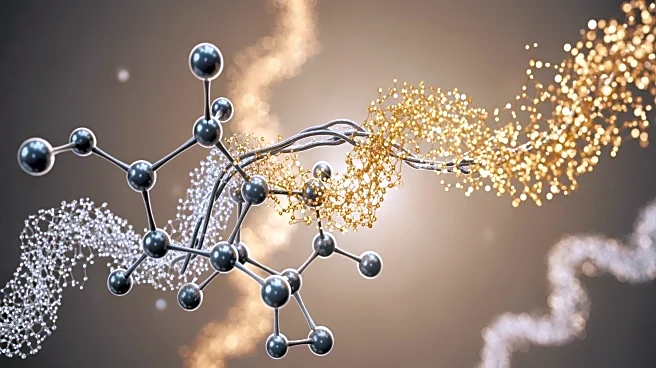What's Happening?
A recent study published in Nature explores the role of Caprin1 in regulating mRNA recruitment by G3BP1 condensates. The research highlights that Caprin1 colocalizes with G3BP1 in cellular condensates, facilitating the recruitment of mRNA. The study utilized
various experimental approaches, including the Microtubule Bench assay, to demonstrate the interactions between Caprin1 and G3BP1. The findings suggest that Caprin1 enhances the recruitment of mRNA to stress granules, which are involved in cellular stress responses.
Why It's Important?
Understanding the molecular mechanisms of mRNA recruitment is crucial for insights into cellular stress responses and the formation of stress granules. These findings could have implications for research into neurodegenerative diseases, where stress granule dynamics play a role. The study also contributes to the broader understanding of RNA-binding proteins and their interactions, which are vital for cellular function and regulation.
Beyond the Headlines
The study's insights into protein-protein and protein-RNA interactions could inform future research on therapeutic targets for diseases involving stress granule dysregulation. Additionally, the research highlights the importance of interdisciplinary approaches in molecular biology, combining biochemistry, cell biology, and advanced imaging techniques.















